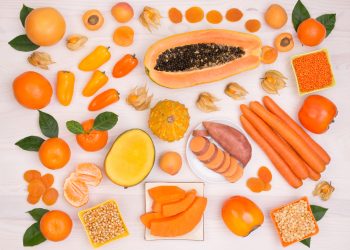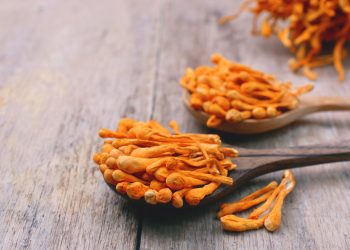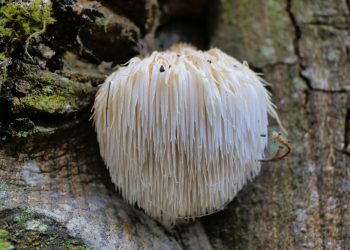To many, nootropics are novel supplements that can aid cognition — but would certain foods fall into the category of nootropics, too?
The short answer is yes. Perhaps these very same foods are what guided our evolution up until this point! Let’s take a look at how to combine traditional nootropics with organ meats that provide enough protein, vitamins, and minerals to keep things in balance. Together they can be a potent combination, as we’ll explore below.
- Nootropics: a way to feed your brain
- Food nootropic vs. supplement nootropics
- Are organ meats nootropic? What the research says
Nootropics: a way to feed your brain
Substances which improve memory, reaction times, capacity for learning, and/or general cognitive function are considered nootropics. The word nootropic comes from the French term “nootrope”, which in turn is taken from the Greek (“nous” and “tropos”, or “mind” and “turning”). Much time and research has been devoted in recent years to foods, drugs, and drinks which can increase our brainpower. [1]
Whilst the exact link between the digestive system and the nervous system is still being explored even today, it’s a certainty that keeping the correct quantities of micronutrients in your diet and remaining well-fed is the only way to keep yourself at full mental capacity. As the old Spanish proverb goes: the belly rules the mind! [2]
Food nootropic vs. supplement nootropics
The word “nootropic” generally has connotations of supplements or drugs, but food and drink can be classified as nootropics by most definitions, too. Here is some more information on the different classifications.
Food/drink nootropics
“Dietary manipulations are a viable strategy for enhancing cognitive abilities and protecting the brain from damage, promoting repair, and counteracting the effects of ageing.”
Fernando Gómez-Pinilla, Professor and Director of the Neurotrophic Research Laboratory, UCLA [3]
The human brain relies on water to function, with sodium and potassium to guide the electrical impulses. Besides this fluid, we have amino acids, glucose, lipid fats, micronutrients, and proteins. Organ meats especially are densely packed with many of these; nose-to-tail eating, therefore, would probably have been absolutely key for our development, as Prof. Gómez-Pinilla suggests above. [4]
Food and drink have a profound effect on how we interact with the world. If we have not eaten for a while, we might be run down or irritable. If we have had a particularly large meal for lunch, we might feel like we need a nap. If we eat certain foods just before bed, we might even have bizarre or interesting dreams! [5]
Amino acids are necessary for synthesising essential neurotransmitters, which we use for memory, and can affect our mood and how we think. Proteins are needed to help make and maintain brain cells. Essential nutrients, vitamins, and minerals are required to produce energy for the brain and create signalling molecules. The brain is an intricate machine that has appropriately intricate needs. [6]
Here are just a few items of food and drink that could be considered brain-boosting:
- Bone broth
- Coffee
- Eggs
- Fresh fruit juices
- Kale
- Matcha/certain teas
- Organ meats
- Raw honey
- Raw milk
- Reishi mushrooms
- Shiitake mushrooms
Supplement nootropics
Some people might find it more convenient to take a supplement rather than find a quality source of some of the items listed above. Supplements tend to be a single, isolated nutrient or substance which can already be found in whole foods or drinks. Here are some popular choices:
Top supplemental nootropics include:
- Caffeine
- Carnosine
- Choline
- Cobalamin (vitamin B12)
- Cordyceps mushrooms
- Creatine
- Cyproheptadine
- Cysteine
- DHEA/Progesterone/Pregnenolone
- Folate (vitamin B9)
- Glycine
- L-theanine
- Lysine
- Niacin (vitamin B3)
- Nicotine
- Pantothenic acid (vitamin B5)
- Peptides
- Pyridoxine (vitamin B6)
- Selenium
- Taurine
- Thiamine (vitamin B1)
- Tyrosine
- Uridine
Are organ meats nootropic? What the research says
“Advances in molecular biology have revealed the ability of food-derived signals to mediate the effects of food on cognitive function, which is likely to have been crucial for the evolution of the modern brain.” [7]
Some of the most nutritious and nootropic organ meats include:
As we’ve discussed already on this blog, many schools of thought point to our ancestors consuming organ meat whenever it was available. Modern studies suggest these may have been key in the development of our brains, so their possible nootropic effect is fairly evident. Many of the substances listed above are much more plentiful in organ meats than other dietary sources. [8]
- Beef brain
- Beef liver
- Beef thyroid
Beef brain
There are a number of powerful compounds found in human and animal brain tissue, and are difficult to acquire from other sources. Some of them have been observed to have remarkable impacts on cognitive function. These can be protective, and even help remediate certain disorders, illnesses, and degenerative conditions.
BDNF, or Brain-Derived Neurotrophic Factor, is one such substance. When it is abundant in the brain and properly utilised, it not only aids synaptic health and neuroplasticity, it exhibits anti-depressant effects, and can be key to mood stabilisation. [9]
Another versatile, protective compound found in organ meats like brain and liver is phosphatidylserine. This is a multifunctional bioactive lipid, required for a healthy nervous system, production of myelin, problem-solving abilities, languages, motor skills, reactions, and reflexes. There is approximately 700mg of phosphatidylserine in just 100g of cooked bovine brain, which is more than twice the amount in mackerel, the next most-concentrated source. Other organ meats average roughly 300mg per 100mg, too – although brain is significantly higher. [10][11]
Sphingolipids are also found in good concentrations in brain tissue, there are a huge number of these, and they are required for mitochondrial health and cell signalling. They can also protect the brain from a variety of degenerative diseases. [12]
Beef liver
Another organ meat that is almost certain to have played a vital role in human development is liver. Professor of Anthropology at Northern Illinois University, Kristen Borre, describes Inuit models of hunting and dieting, and how liver is prized amongst other organ meats: “when fresh seal is eaten after the hunt, the hunter slits the abdomen laterally, exposing the internal organs. Hunters first eat pieces of liver, which is described as rich in blood, or they use a tea cup to gather some blood to drink. The hunter may then chop pieces of fat and brain together and mix it with the remaining blood to eat with meat usually from the flanks.” [13]
Liver is extremely rich in b-vitamins, choline, selenium (kidneys also contain lots of selenium), iodine, and amino acids. Many of the micronutrients that are found in beneficial ratios in liver are sold as isolated supplements on their own, including cobalamin, riboflavin, folate, niacin, choline, glycine, lysine, tyrosine, and many more. There is scarcely any food as complete in terms of its nutritional profile as liver, and the benefit it provides to brain health can be outstanding. As far as foods go, it might be considered one of the most powerful nootropics.
Beef thyroid
Sweetbread, thymus gland, neck chops — consuming animal thyroid can provide us with good amounts of thyroid hormone. This boosts metabolism, helps increase temperature, promotes better circulation, can improve mood and mental acuity, and has a host of other benefits too long to list here. In the words of Dr. Broda Barnes: “there is an old medical saying that just a few grams of thyroid hormone can make the difference between an idiot and an Einstein.” [14]
It can also be protective and help mitigate, prevent, and even treat serotonin-related issues such as depression, aggression, and anxiety. According to noted endocrinologist Dr. Ray Peat, it is essential for correct and healthy brain functions. Memory and mood especially can be quite reliant on correct thyroid function, and balanced levels of thyroid hormone can prevent degeneration and ageing of the brain. [15]
Summing things up
Quality organ meats can be an exceptionally powerful brain-boosting food, and all the compounds they contain can complement existing supplements you may be taking if you already have other nootropics.
Common practises, like taking caffeine before a workout, could benefit hugely from Beef Liver Capsules, for instance — the protein content, amino acids, and micronutrients from liver or a supplemental source can drastically increase the efficiency with which your body builds new muscle, and likewise the caffeine can help boost physical performance during your exercise whilst improving the absorption of all the helpful compounds.
Eggs for breakfast alongside Hirsch Organ Meat Supplements can also be a strong pairing, with the high choline content of eggs benefiting from the equally high amount of B-vitamins, and specifically cobalamin. [16]
Remaining conscious of your dietary choices and responsible supplementation wherever you might have a nutritional deficiency is a sure-fire way to ensure good brain health. With careful experimentation, you can find substances that help you and boost your mental faculties. Stay positive and keep exploring these possibilities!








